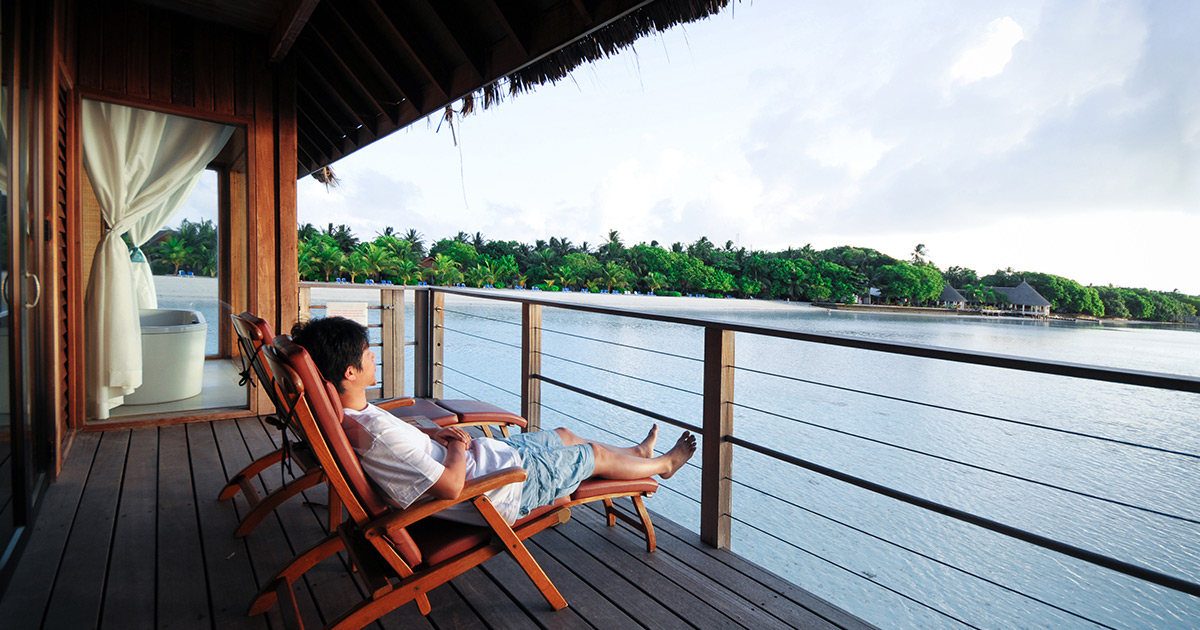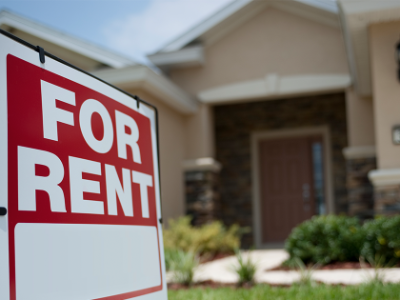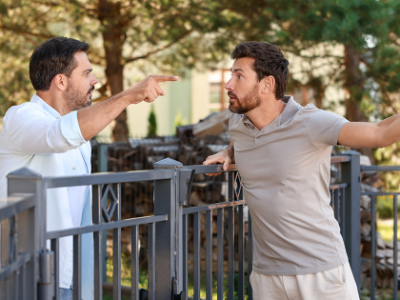Still trying to squeeze in that summer vacation before the leaves turn and the kids go back to school? Vacation home rentals are often great deals and can make for great fun with family and friends.
Vacation rental homes typically give you some additional freedom and options to work with. For example, you can often get more space for your dollar than hotel rooms and they usually have kitchens and appliances to help you save money by preparing meals. They can be excellent for large groups traveling together, offer fun extra amenities and provide a sense of a community’s local flavor.
However, vacation home rentals do entail certain risks personally, legally and financially. Here are eight things to consider to help make renting a vacation home a great experience for your family:
1. Use a reliable vacation rental company that offers protection policies and guarantees.
Bulletin board sites. Sites that specialize in vacation rentals by owner such as HomeAway™, Airbnb and FlipKey offer bulletin boards that allow homeowners to post their own homes as vacation rentals. Many (but not all) of these types of companies offer basic security features such as background and address checks, uncensored reviews and systems to flag or remove posts that they suspect are fraudulent. Many of these companies will also give you a refund for subpar rentals and offer additional vacation insurance options, protection plans and guarantees. Some companies will automatically refund your money or find you a replacement if you realize the place isn’t as advertised once you arrive. Others have optional guarantees you can purchase.
Curated sites. In addition to bulletin board sites, you may also want to consider renting through an agency that manages “curated” vacation rental properties. These properties have been vetted by the agencies and the agencies have contractual responsibilities to you as a renter.
Agencies with curated rentals usually offer a limited number of rentals in specific regions. Rental fees from curated agencies may be higher than those from vacation rental bulletin boards, but they are a good way to minimize many of the risks of renting a vacation property.
2. Check if vacation rental homes are legal where you intend to rent.
Some vacation destinations such as New York and San Francisco have regulations forbidding homeowners from renting residential properties for terms shorter than a month. These regulations are intended to protect hotel-tax revenue and guarantee an ample stock of permanent housing for residents. Some cities prosecute property owners who violate the regulations while some attempt to license vacation rentals and assess taxes on renters. Other cities are still determining how to handle such vacation rentals.
3. Consider the insurance implications.
When you’re renting someone’s home or condo, what happens if your personal belongings are damaged or stolen, someone in your family gets hurt or you damage the rental property while you’re there? A lot of it depends on whether you purchased vacation insurance and how your insurance covers you — and what type of vacation home insurance the owner has on the property.
Homeowners or renters insurance policy. Homeowners policies regularly provide protection for off-premise destruction or theft, which covers your possessions while they are outside your home. If your homeowners policy does not contain off-premise protection as part of its standard coverage, you may be able to purchase this coverage for an additional charge. Check the liability portion of your policy to determine your level of coverage for accidents that occur outside your home. To be safe, you may want to check with your insurance carrier, the home owner, the rental agency and perhaps even an attorney to clarify the full scope of coverage for difference circumstances.
The rental home owner’s policy. For vacation homes that are for rent by owner, the homeowners insurance costs will likely increase and additional coverage may need to be purchased. The insurance needs will depend on how often the property is rented out and for how long. For a one-time short-term rental, a simple extension (known as an “endorsement”) can be added to the existing homeowners policy. On the other hand, if the vacation home is regularly rented out, a separate business coverage or a landlord policy may be required. While some rental services, such as Airbnb and VRBO™, offer coverage for homeowners, it’s important to read the fine print to determine limits and exclusions.
4. Ask questions to help you know what you’re getting with your vacation rental home.
Here are a few questions you may want to ask the homeowner to be sure you understand as much as possible about the property:
- How can I get around? Are things close enough to walk? Do I need a car? Is there convenient public transportation? If I bring a car, is covered parking included?
- What amenities are nearby? How far are they? Grocery stores? Restaurants? The beach? Other entertainment attractions? The airport? In addition to asking the owner, you can also use mapping services to help you get a sense of the location and nearby amenities.
- Is the neighborhood or apartment complex noisy?
- Do the neighbors know the home is being rented? Do they approve?
- How available are you if I have questions? Who do I call if something breaks or I have another problem?
- Are laundry facilities available?
- Are linens and other basics included such as sheets, towels, beach towels, toilet paper, paper towels, hand soap, dishwasher detergent and laundry detergent?
- What extra amenities do you provide?
- Is Wi-Fi available?
- Is the property kid-friendly? Do you allow pets?
- What does the cleaning fee cover? Am I expected to do any cleaning before I leave?
5. Check up on the rental homeowner.
Before you sign anything or make any payments, do a little research to help you check up on the owner and the property:
- Don’t rely on just electronic communication. Speak to the property owner over the phone to help you get a feel for them.
- Ask the owners for referrals from other renters. Speak to them by phone as well.
- If the property is part of a homeowners association, consider contacting the association to verify that this person is actually the owner.
- Consider contacting the company that does maintenance or cleaning to verify that they do the work and ask about the condition of the property. You might also wish to inquire regarding the condition of the property.
- Read the owner-written property descriptions carefully; don’t just skim.
- Read reviews of the property and the homeowners carefully. The more positive reviews from renters similar to you, the better.
- Consider looking up the owner and the property on the internet.
- If you have a weird feeling about the owners or they don’t seem helpful from the start, trust your gut and walk away!
6. Get a contract for renting the vacation home.
Before you make any agreements or payments, make sure you have a contract outlining specifics, such as:
- The arrival and departure dates.
- The method, timing and full amounts of all payments including additional fees such as deposits, pet fees and cleaning fees.
- What situations might cause the owner to withhold your deposit.
- The cancellation policy.
Don’t skip the fine print and don’t hesitate to ask the owner to change contract language you don’t like. You may also want an attorney to review the contract prior to you signing.
7. Pay smart.
If you rent through a well-known vacation rental site or agency, you should be able to pay by credit card. Credit cards offer you the most protection against fraud and wrongful charges. If you’re not able to use a credit card, your second choice should be an online money transfer service like PayPal, which also offers some protections against fraud. Avoid cash payments whenever possible.
8. Review the property once you arrive.
As soon as you arrive, go through the property looking for anything broken, damaged or especially worn and let the owner or agency know right away. If there are any significant problems, take date-stamped pictures for proof. In most cases, they’ll know about the problem or take your word for it. Take special notice of things you might not use the first day but could put a real damper on your trip if they’re broken — heating and air conditioning systems, showers, faucets, toilets, appliances, doorknobs and door locks.



